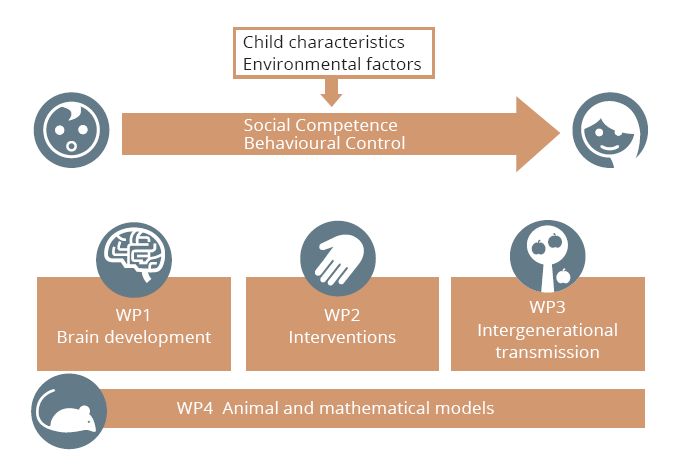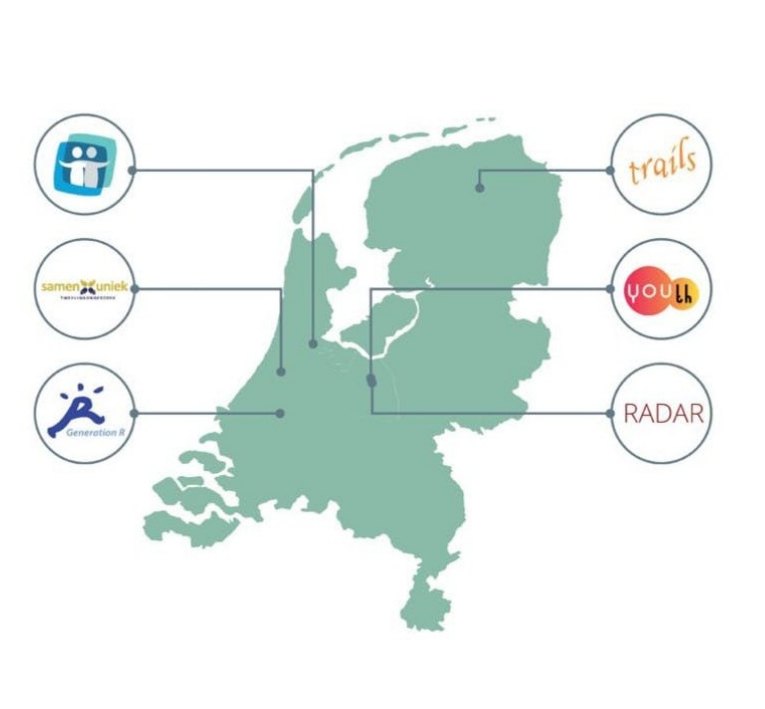Abouts
The Consortium on Individual Development
In 2012, six researchers (main applicant Chantal Kemner, with five co-applicants: Dorret Boomsma, Patti Valkenburg, Marian Joëls, Marinus van IJzendoorn, Sarah Durston) joined forces to apply for Gravitation Programme funding. The Consortium on Individual Development (CID) was one of six teams granted research funding to collaborate over a period of ten years. CID aimed to advance our knowledge and understanding of why some children thrive and others don’t.
With the Gravitation Programme, the Dutch Government aims to encourage research by consortia of top researchers in the Netherlands. The funding is intended for highly ambitious research programs that have the potential to bring about international breakthroughs. Furthermore, the consortia make a substantial contribution to the training of talented researchers.
CID united the best that the Netherlands has to offer in developmental research, involving researchers from Utrecht University (applying university), University Medical Center Utrecht, University of Amsterdam, Leiden University, University Medical Center Groningen, Rotterdam Erasmus Medical Center, and VU University Amsterdam. It included a wide range of behavioural and social disciplines, such as behavioural genetics, developmental (neuro)biology, psychiatry, neurocognitive science, developmental psychology, pedagogical sciences, communication science, and mathematics.
In 2023, CID concluded its 10 years of research. To mark this achievement, popular science magazine New Scientist made two special editions about CID: one for their regular readership, and one especially for children. Read more here.
About the study
‘Why some children thrive, and others don’t’
Most children develop well and find their way into society without many problems, but not all children manage to do so. We know that this difference is related to a combination of the child’s disposition and the environment in which he or she is raised. We wanted to understand the role of brain development herein, how children’s chances for thriving are determined by their (grand) parents, and how we can better guide children’s development.
The consortium aimed to understand and predict how the interplay of child characteristics and environmental factors results in individual differences in the development of social competence and behavioural control of the child. The specific aims were:
To understand brain development as a mechanism underlying the associations between child characteristics and environmental effects;
To understand how changes in development are dependent on individual differences in susceptibility to environmental influences;
To understand transmission of behaviour across generations, and the role of parenting and genetic factors herein;
To predict long-term interactive effects between individual and environmental factors on developmental outcomes through animal and mathematical models.
Four work packages
Social competence and behavioural control are central CID measures and were a common thread in our research. Within this joint focus, our four work packages (WPs) worked on specific aspects of development: The role of brain development (WP1), Effects of interventions (WP2), The role of generational transmission in families (WP3), Animal and mathematical models of development (WP4).

Six large cohorts
CID examines how the environment (family characteristics, parents and siblings, peers, and broader societal influences including media) and child characteristics (genetic makeup, temperament, and pre- and perinatal factors) affect the development of social competence (SC) and behavioural control (BC), skills that are essential for functioning in society and for reducing risk of behavioural and emotional problems.
Two new longitudinal child cohorts were set-up as part of CID: YOUth cohort and Leiden intervention cohort L-CID. The four others have been following children for over a decade: TRAILS (Tracking Adolescents’ Individual Lives Survey), Generation-R, RADAR (Research on Adolescent Development And Relationships) and NTR (Netherlands Twin Register). The animal studies from WP4 complement these cohorts.

